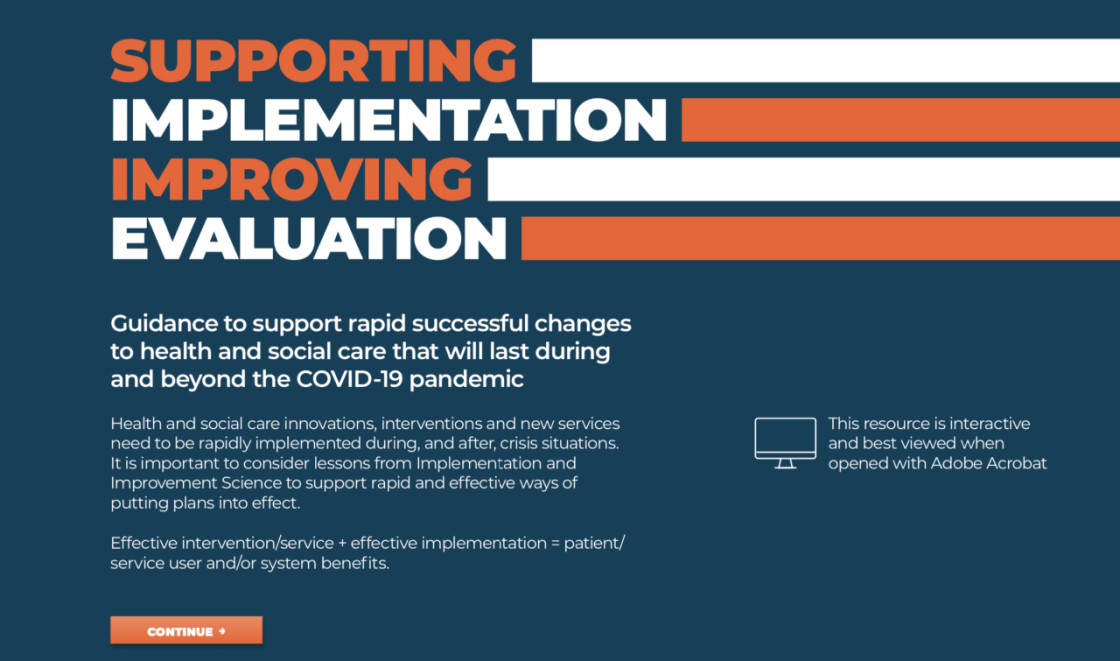Supporting implementation and improving evaluation of health and social care interventions and services during and after the Covid-19 pandemic
Implementation and improvement science researchers at ARC South London have developed an interactive resource to support the rapid implementation and evaluation of health and social care innovations, interventions and new services during, and after, the Covid-19 pandemic.
